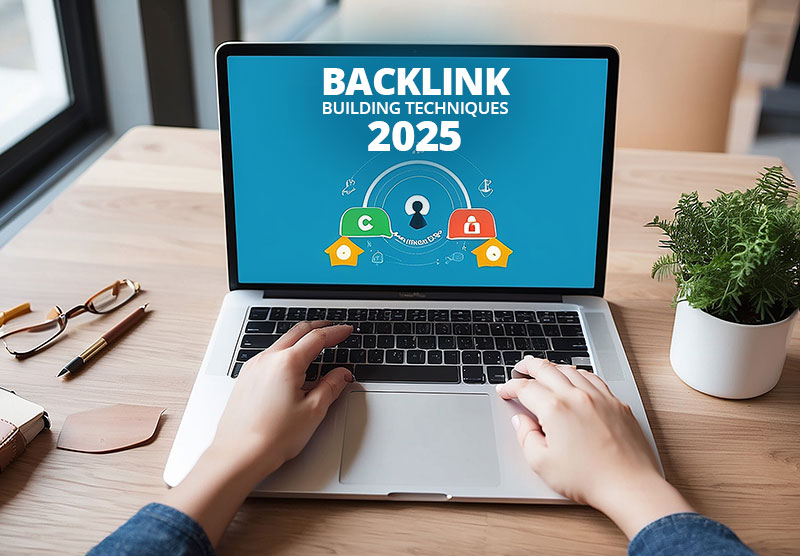
Backlink building is a crucial aspect of improving a website’s search engine ranking and authority. Going forward in 2025, AI is going to play a vital role in Search Engine Optimisation.
By leveraging AI, businesses can automate tasks, gain deeper insights, and optimize content more effectively. Key applications of AI in SEO include:
- Content Creation and Optimization
AI-Powered Writing Tools: Platforms like Wordtune.com, Writesonic.com,and Copy.ai assist in generating high-quality content, including blog posts, meta descriptions, and product descriptions, streamlining the content creation process.
Content Enhancement: AI tools analyze existing content to provide recommendations for improvement, ensuring alignment with SEO best practices.
- Keyword Research and Analysis
Identifying Opportunities: AI-driven tools analyze search patterns and competition to uncover valuable keyword opportunities, aiding in effective content strategy development.
Predictive Analysis: AI predicts keyword performance trends, enabling proactive adjustments to SEO strategies.
- Technical SEO Audits
Site Performance Evaluation: AI tools conduct comprehensive audits, identifying issues such as broken links, duplicate content, and site speed problems, which are crucial for maintaining optimal site health.
Structured Data Implementation: AI assists in generating and implementing structured data, enhancing search engine understanding of website content.
- User Experience Enhancement
Behavior Analysis: AI analyzes user interactions to identify areas for improvement in site navigation and design, contributing to a better user experience.
Personalization: AI enables dynamic content adjustments based on user behavior and preferences, increasing engagement and satisfaction.
- Competitor Analysis
Performance Monitoring: AI tools track competitors’ SEO strategies, including backlink profiles and content performance, providing insights to inform and refine one’s approach.
- Voice Search Optimization
Natural Language Processing (NLP): AI processes conversational queries, helping optimize content for voice search, which is increasingly prevalent with the rise of smart assistants.
- Rank Tracking and Reporting
Automated Monitoring: AI continuously tracks keyword rankings and provides real-time reports, facilitating timely strategy adjustments.
Notable AI SEO Tools
Clearscope: Utilizes AI to analyze top-performing content and provides recommendations for keyword usage and content structure.
ContentShake AI: Developed by Semrush, this tool combines proprietary SEO data with AI to assist in creating optimized articles.
Alli AI: Offers automated SEO changes across websites, including on-page optimization and link building.
The traditional backlinks-building techniques will continue to thrive in 2025 and beyond.
- Create High-Quality, Shareable Content
Write Evergreen Content: Publish in-depth guides, tutorials, or resources that remain relevant over time.
Visual Content: Use infographics, charts, or videos that other sites will want to link to.
Original Research: Conduct surveys, case studies, or data-driven research that others can cite.
- Guest Blogging
Write articles for reputable websites in your niche.
Include a relevant link to your website in the content or author bio.
Focus on websites with high domain authority and engaged audiences.
- Broken Link Building
Find broken links on websites in your niche using tools like Ahrefs or Screaming Frog.
Reach out to the site owner to notify them and suggest your content as a replacement.
- Resource Page Outreach
Identify “resource pages” in your industry that list valuable links.
Reach out and suggest adding your relevant content to their list.
- Competitor Backlink Analysis
Use tools like Ahrefs, SEMrush, or Moz to analyze your competitors’ backlinks.
Identify opportunities where you can also acquire backlinks from the same sources.
- Collaboration and Partnerships
Partner with complementary businesses for joint content creation or promotions.
Create co-branded content that links to each other’s sites.
- Utilize Social Media
Share your content across social media platforms to increase its visibility.
Engage with influencers and communities that might find your content valuable and link to it.
- Create Skyscraper Content
Identify top-performing content in your niche and create an even better version.
Reach out to sites linking to the original content and suggest your upgraded resource.
- Engage in Online Communities
Participate in forums, discussion boards, or Q&A sites like Quora or Reddit.
Include links to your content when it’s relevant and adds value to the conversation.
- HARO (Help A Reporter Out)
Sign up for HARO and respond to journalist inquiries related to your expertise.
Provide value and get featured with a backlink to your site.
- Testimonials and Reviews
Provide testimonials for tools or services you use.
Companies often link back to your site as part of their testimonial showcase.
- Offer Free Tools or Resources
Develop calculators, templates, or tools that other sites will find useful and link to.
- Host Webinars or Podcasts
Invite industry experts, then encourage them to share the event or recordings with their audience, often resulting in backlinks.
- Directory Listings
List your website in high-quality directories relevant to your industry (avoid low-quality, spammy directories).
- Reclaim Unlinked Mentions
Use tools to find mentions of your brand or product that don’t include a backlink.
Politely request the site owner to add a link to your website.
- Build Relationships
Engage with influencers, bloggers, and content creators in your niche.
Building genuine relationships increases the likelihood of them linking to your site naturally.
Popular Tools for Backlink Building:
Ahrefs
SEMrush
Word Stream
Featured.com
Moz
BuzzSumo
Hunter.io
SurferSEO.com
Our favorite for SEO audit is ‘Detailed’ browser extension.
